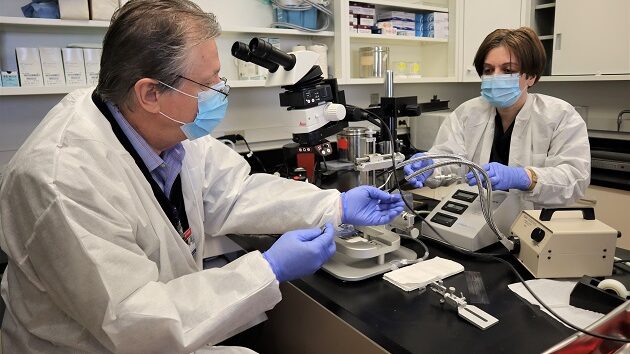$1.6M NIH Grant Supports Research on Obstructive Sleep Apnea

Researchers at Albany Medical College have been awarded a five-year, $1.6 million grant from the National Institutes of Health’s National Institute on Aging to study how age-related changes may impact obstructive sleep apnea, a growing public health concern.
Obstructive sleep apnea occurs when the muscles in the airway relax during sleep, causing breathing to temporarily stop and interrupting sleep. This unrestful sleep can result in excessive daytime sleepiness and exacerbate chronic conditions such as high blood pressure, heart disease and diabetes. It can also lead to serious complications including heart attack or stroke.
“Obstructive sleep apnea is a growing public health problem that’s more common in older adults,” said Irma Rukhadze, PhD, associate professor in the Department of Neuroscience and Experimental Therapeutics at Albany Medical College and a co-principal investigator of the study. “However, little is known about age-related changes in the control of upper airway muscles, which may be a basis of the increased prevalence of OSA in the elderly.”
Dr. Rukhadze and co-principal investigator Victor Fenik, PhD, associate professor in the Department of Neuroscience and Experimental Therapeutics, will focus on the brainstem noradrenergic system, a group of neurons that control upper airway muscles and help keep the upper airway open during wakefulness, but which decrease their activity during sleep.
Using a novel molecular-genetic approach, the researchers will activate or inhibit specific noradrenergic neurons in the brainstem nuclei of young and old mouse models, during both sleep and wakefulness. They will then monitor the activity of the genioglossus, a tongue muscle that plays a key role in keeping the airway open.
“Ultimately, by determining how these specific neurons may be impaired with age, we hope to lay the groundwork for further translational research and eventual therapeutics to help manage this breathing disorder in older patients,” said Dr. Rukhadze.